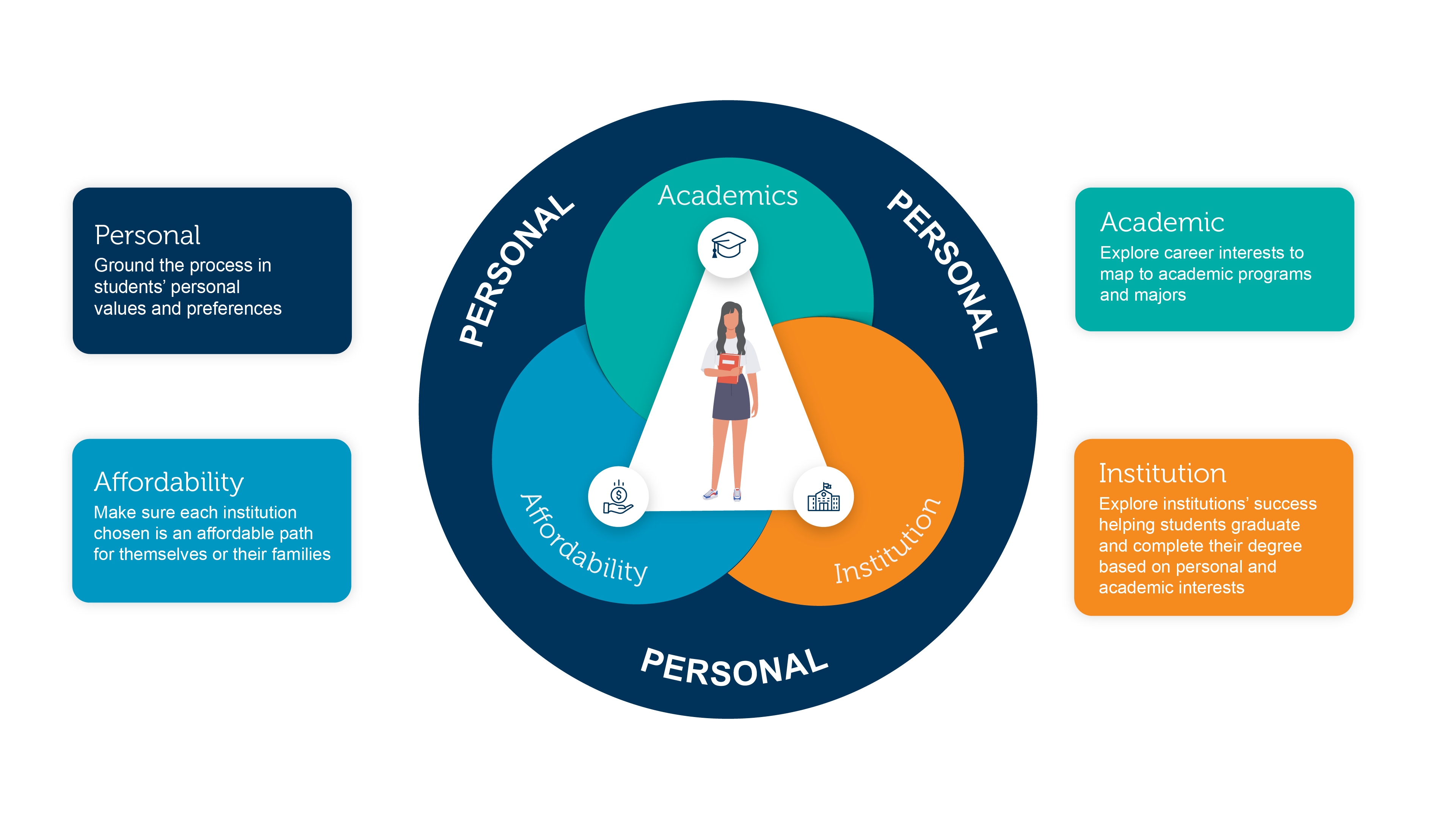Ideally, a student’s college planning experience should serve as a process to help them become educated decision-makers and build their self-confidence. Counselors and parents can support their students’ college decision-making by helping them keep four “fit and match” factors in focus: personal, academic, institution, and affordability.

If you have a student who is too focused on one part of the college application process, they can miss out on colleges that could be a great match for them. An area where students often become overly focused is taking the college admissions assessments, like ACT or SAT. However, given the new wave of test-optional colleges, 53% of college-bound students are unsure of the role of the ACT or SAT in the college application process this year. We can help students focus and understand if taking these assessments will help them achieve better matches by sharing a few pieces of advice.
1. Colleges that do not require a test for admission or are test-optional will weigh other parts of a college application more heavily.
These application parts include a resume or CV, admissions essay, personal interview, digital portfolio, or grades in challenging courses. Advise students to ask each college or university on their college application list how their application will be evaluated and then direct the students’ attention to those other application components.
2. Colleges, universities, and private scholarship providers may use ACT or SAT test scores in awarding scholarships.
When discussing the affordability of test-optional colleges, it is important to help students learn if each school on their list offers merit scholarships to students without ACT or SAT test scores or if they may want to take one of these tests in order to keep all financial aid options available to them.
3. High schools that offer many high-level courses, both core and elective, help their students in the college admissions process because admissions offices may weigh a strong course load over ACT or SAT scores.
Colleges will ask for a high school profile which illustrates their strength of courses as well as the shape of the graduating class. Having a strong high school profile is often overlooked in the college list process, but it can be very important in deciding to take the ACT or SAT. With this, students that successfully take advantage of all that is offered at their high school may be able to demonstrate college readiness without taking a standardized test.
4. If a student wants more college options, they may need to take either the ACT or SAT since some colleges and universities will require a test to be admitted.
Ultimately, it’s up to the student to report their scores to the institution, so they can always try and only submit the score if it will support their application.
There’s a saying that echoes across the college and school counseling community and lives deep in our hearts: “College is a match to be made, not a prize to be won.” Students control their future and attending a college that is a good match and fit can lead to life-long success. The decision to opt-out of testing is not a decision to be made quickly. It takes time and careful consideration of the best path forward for the individual student. You may find our student-facing article, Applying Test Option: Should You Still Take the ACT or SAT?, helpful for guiding their decision!
If taking the ACT or SAT is the right decision for your student(s), click here to visit the ACT Registration Calendar and the SAT Registration Schedule.

